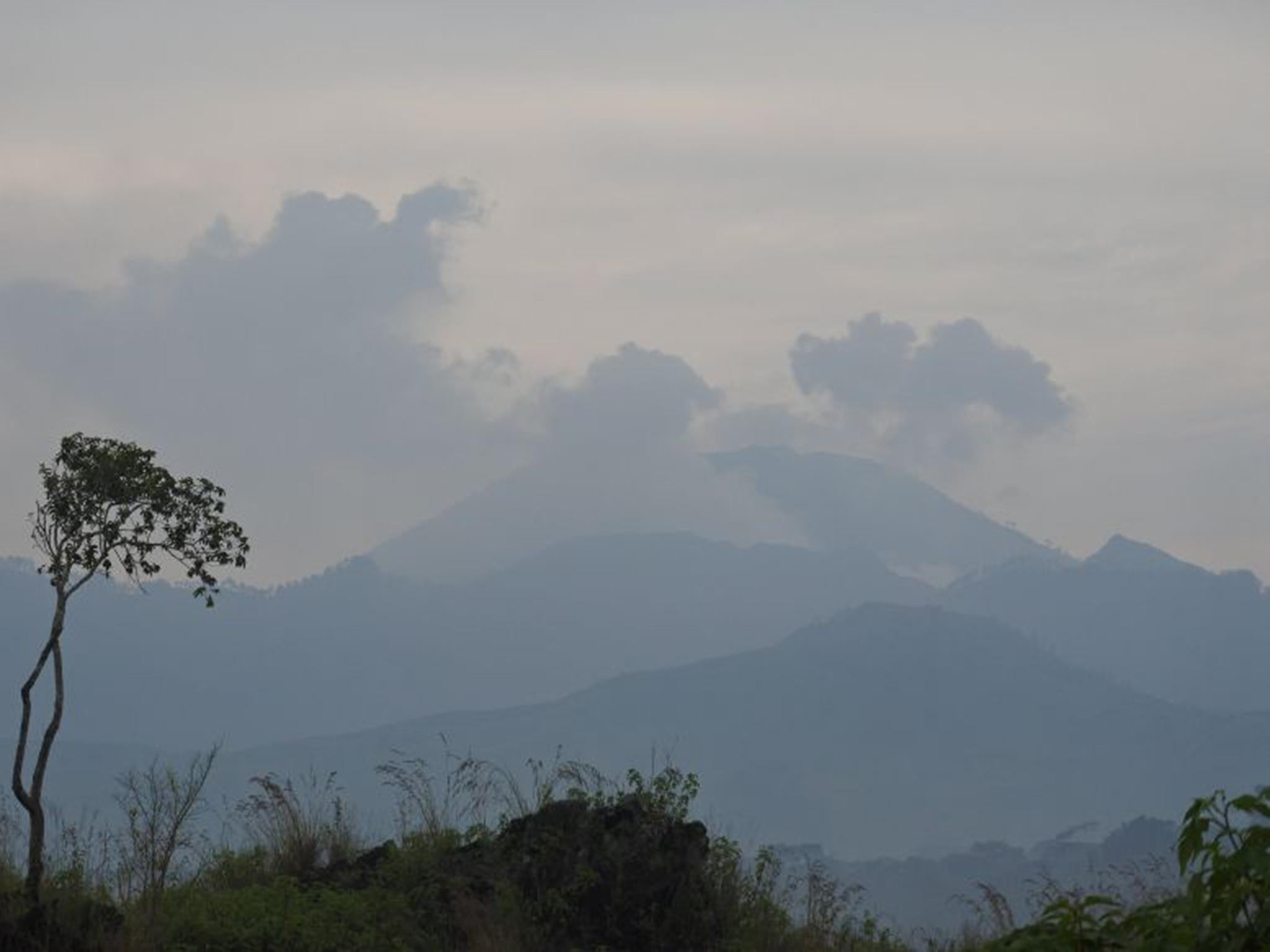Indonesian volcano spews poisonous gas, leaving 30 in hospital and closing tourist site
Scores of people forced to evacuate from the slopes of Mount Ijen

Your support helps us to tell the story
From reproductive rights to climate change to Big Tech, The Independent is on the ground when the story is developing. Whether it's investigating the financials of Elon Musk's pro-Trump PAC or producing our latest documentary, 'The A Word', which shines a light on the American women fighting for reproductive rights, we know how important it is to parse out the facts from the messaging.
At such a critical moment in US history, we need reporters on the ground. Your donation allows us to keep sending journalists to speak to both sides of the story.
The Independent is trusted by Americans across the entire political spectrum. And unlike many other quality news outlets, we choose not to lock Americans out of our reporting and analysis with paywalls. We believe quality journalism should be available to everyone, paid for by those who can afford it.
Your support makes all the difference.Scores of people were forced to evacuate their homes and at least 30 people were hospitalised after a volcano in Indonesia started to emit toxic gases.
As Mount Ijen in East Java belched thick clouds of sulphuric acid nearly 200 people living on its slopes had no choice but to leave their homes.
The toxic air caused some to vomit, while others experienced difficulty breathing. A popular tourist and mining site were forced to close.
"Because of this incident, the public - tourists or miners - are not allowed near the crater until further notice," said Sutopo Purwo Nugroho, spokesman for the national disaster mitigation agency.
He added that had been no increase in seismic activity around the volcano.
Miners dig up hardening yellow sulphur to sell for use in everything from cosmetics to matchsticks.
Mount Ijen regularly releases small amounts of noxious gases but the site stays open to the public.
Around 5 million of Indonesia's 250 million people live and work near volcanoes, according to authorities, largely because of the fertile farming soil.
Earlier this year the country's Mount Sinabung volcano erupted, shooting a spectacular plume of ash billowing 16,400 feet into the atmosphere.
Hot clouds were subsequently seen rolling down the mountain's slopes near Kutarakyat on the island of Sumatra, before drifting three miles south.
Agencies contributed to this report
Join our commenting forum
Join thought-provoking conversations, follow other Independent readers and see their replies
Comments